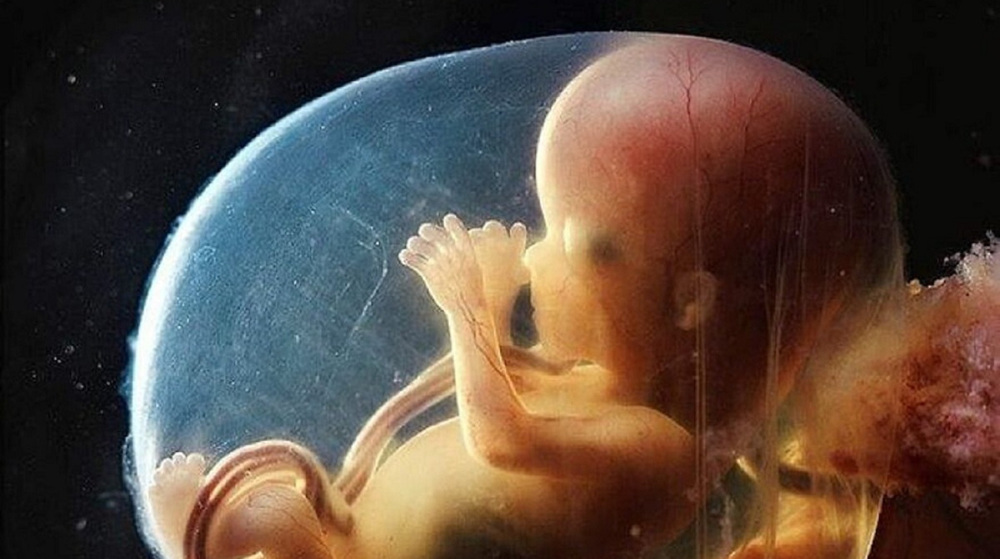Global COVID-19 cases near 5.5mn mark, WHO warns of 2nd peak
The number of confirmed coronavirus infections worldwide now stands at 5,495,061, with 346,232 cases having resulted in loss of life, according to the latest figures compiled by Johns Hopkins University.
The latest data also indicated that the United States continues to lead the world by far in the number of infections and deaths — 1,662,302 and 98,220 respectively as of late Monday — with Brazil overtaking Russia to become the country with the second-highest infections of 374,898.
Russia leads Europe in the number of cases, at 353,427, followed by the UK’s 262,547.
The UK holds the world’s second-highest number of fatalities from the contagion, at the roughly 37,000 mark.
As a growing number of countries are loosening restrictions amid declining numbers of infections, the World Health Organization (WHO) warned on Monday that countries showing declining COVID-19 cases might face an “immediate second peak” if they let up too soon on the measures to stop the epidemic.
“When we speak about a second wave, classically what we often mean is there will be a first wave of the disease by itself, and then it recurs months later. And that may be a reality for many countries in a number of months’ time,” said WHO emergencies head Mike Ryan during an online briefing.
Ryan said the world was still in the middle of the first wave of the coronavirus outbreak. He said that, while cases were declining in many countries, they were still increasing in Central and South America, South Asia, and Africa.
“We need also to be cognizant of the fact that the disease can jump up at any time. We cannot make assumptions that just because the disease is on the way down now, it is going to keep going down,” the WHO official said.
The warning came as many European countries and US states have taken steps in recent weeks to lift lockdown measures that partially contained the spread of the virus but harshly impacted their economies.
WHO fears ‘silent epidemic’ in Africa without testing
Another WHO official, Samba Sow, expressed concern on Monday that Africa could face a “silent epidemic” if its leaders do not prioritize testing.
“My first point for Africa, my first concern, is that a lack of testing is leading to a silent epidemic in Africa. So we must continue to push leaders to prioritize testing,” Sow said.
According to a WHO modeling released earlier this month, the new coronavirus could kill 150,000 people in Africa in a year unless urgent action is taken.
WHO Director General Tedros Adhanom Ghebreyesus has said Africa is the region with the fewest diagnosed coronavirus cases, accounting for less than 1.5 percent of the global total and just 0.1 percent of deaths.
Tedros credited Africa’s past experience in dealing with other epidemics as helping it scale up its response to the coronavirus and saving it from the global impact so far. All African countries had preparedness plans in place, he said, although there were still “gaps and vulnerabilities.”
Palestinians easing COVID-19 limits in West Bank
Mosques, churches, and businesses in the Israeli-occupied West Bank are to reopen on Tuesday, Palestinian Prime Minister Mohammad Shtayyeh announced on Monday.
The Palestinian Authority declared a health emergency in March and imposed lockdowns following the first confirmed cases of the disease in the town of Bethlehem.
Shtayyeh said it was time to “cautiously return life to normal” now that infection rates had slowed.
The reopening of the houses of worship, shops, and factories will coincide with the last day of the Eid al-Fitr holiday, marking the end of the holy month of Ramadan.
The Palestinian Health Ministry has confirmed 423 cases of the disease in the occupied West Bank as well as two deaths.
Syria eases curbs as new virus cases rise after expats return
Syria also announced on Monday that it would lift an overnight curfew on Tuesday and allow movement between governorates, easing coronavirus lockdown measures even as its Health Ministry reported the largest single-day jump in cases.
The ministry reported 20 new infections of the highly contagious disease on Monday, bringing the country’s tally to 106 cases and four deaths.
Syria has witnessed a surge in infections in recent days, which it has attributed to the return of Syrians from abroad. Damascus has also said that it will halt flights repatriating Syrians for the time being as it treats those that have recently returned.
Iran reopens key Shia shrines after two-month closure
Iran on Monday opened the Imam Reza (PBUH) Shrine in the city of Mashhad and Hazrat-e Massoumeh (PBUH) Shrine in Qom — the city where Iran’s first coronavirus cases were reported — more than two months after they were closed to worshipers, as the country reported its lowest death toll from the COVID-19 outbreak since March.
In Tehran, the Jamkaran Mosque and the Shah Abdol-Azim Shrine were reopened.

Iran has reported 137,724 cases and 7,451 deaths. On Sunday, 34 people died of COVID-19, the lowest daily toll since the Iranian outbreak peaked in March.
Saudi Arabia to end curfew on June 21, except in Mecca
Saudi Arabia, meanwhile, will also begin easing COVID-19 restrictions on movement this week, with the exception of the holy city of Mecca, from June 21, its official news agency reported Tuesday.
In the first phase, which is due to begin Thursday, a 24-hour curfew will be revised to 3pm-6am, and bans on domestic travel, holding prayers in mosques, and workplace attendance in both the government and private sector will be lifted from May 31.
The round-the-clock curfew will remain in force in Mecca, however, and is only expected to be eased from June 21, when curfew time will be changed to 3pm-6am and prayers will be allowed in mosques.
The Hajj and Umrah pilgrimages, which usually attract millions from around the world, will remain suspended.
Brazil surpasses US in daily death toll
Brazil’s daily coronavirus fatalities for Monday exceeded that of the United States for the first time, according to the Latin American country’s Health Ministry, which reported 807 deaths over the last 24 hours, compared with 620 confirmed fatalities in the United States.
Brazil’s total death toll now stands at 23,473 as of Monday.
The country now holds the world’s second-worst outbreak in the world after the US, with 376,669.

Study shows 8,000 more deaths in Mexico’s capital
The Mexican capital, Mexico City, registered 8,072 more deaths in the first five months this year than the average from the same period over the past four years, according to an analysis released Monday by independent researchers, suggesting a possible surge due to the coronavirus outbreak.
Health officials have reported 1,655 deaths from the disease in the capital, out of the 7,394 deaths nationwide. They have also acknowledged that the true death toll is higher but difficult to estimate due to a low testing rate.
Software developer Mario Romero Zavala and economic consultant Laurianne Despeghel tallied 39,173 fatalities this year through May 20 by extracting data from Mexico City’s online database of death certificates, according to a Reuters report. Over the past four years, they calculated just 31,101 deaths on average during the same period, using the same database.
More patients than beds in India’s Mumbai
People infected with the coronavirus are reportedly finding it extremely difficult to find empty beds in hospitals in India’s largest city of Mumbai.
According to a Reuters report, it is not just beds that are in short supply in Mumbai, as the city’s municipal authority announced on May 16 that it did not have enough staff to operate the beds required for patients critically ill with the disease.
The world’s second-most populous country reported 6,767 new coronavirus infections on Sunday, its biggest single-day increase.
Government data showed the number of COVID-19 infections in the South Asian country was doubling nearly every 13 days, even as the government begins easing lockdown restrictions.
India has so far reported more than 131,000 infections, including 3,867 deaths.
Japan lifts Tokyo’s state of emergency
Meanwhile, Japanese Prime Minister Shinzo Abe lifted a state of emergency for Tokyo and four remaining areas on Monday after the number of infections fell across the country.
The move meant that the entire country would now have the social distancing curbs loosened, after an initial lifting of restrictions for most areas on May 14.
Abe also acknowledged that Japan had faced some problems with its response, vowing a review once the outbreak was over. He further praised the “Japan model” in which it brought the outbreak under control in six weeks without the strict lockdowns imposed in other nations.
Japan has so far reported nearly 16,600 infections and 839 deaths.
Malaysia reports 172 new cases, mostly foreigners
Malaysia reported 172 new coronavirus cases on Monday, most of them foreigners held at immigration centers, taking the total number of infections in the country to 7,417.
The country’s Ministry of Health said the number of deaths remained unchanged at 115.
Indonesia reports 479 new infections
Indonesia reported 479 new cases on Monday, taking the total in the Southeast Asian country to 22,750, according to Health Ministry official Achmad Yurianto.
Yurianto reported 19 more deaths, taking the total to 1,391.
Indonesia has the highest COVID-19 death toll in East Asia after China.

Philippines registers 5 new deaths, 284 infections
The Philippines’ Health Ministry on Monday reported five additional coronavirus-related deaths and 284 more infections, the largest daily increase of cases in two weeks.
In a bulletin, the ministry further said total deaths had climbed to 873 and cases to 14,319.
Italy reports 92 deaths, only 300 new infections
Deaths from COVID-19 climbed by 92 in Italy on Monday, compared with 50 the previous day, the country’s Civil Protection Agency said, while the daily tally of new cases declined to only 300 from 531 on Sunday.
Sunday’s daily death toll did not include fatalities from the worst-affected Lombardy region, however, due to technical problems.
Italy’s total death toll since the outbreak in late February now stands at 32,877, the agency said, the third-highest in the world after those of the US and the UK.
The number of confirmed cases stands at 230,158, the sixth-highest global tally.
Russia’s Putin back in Kremlin as country looks to ease lockdowns
Russian President Vladimir Putin made a rare lockdown appearance in the Kremlin on Monday after official reports of improvements in the coronavirus situation that may allow the country to re-open some tourist resorts soon and relax restrictions in many regions.
Russia, which has reported the world’s third most COVID-19 cases, confirmed 8,946 new infections on Monday, bringing its nationwide tally to 353,427. Officials also confirmed 92 new deaths, pushing the toll to 3,633.
Greece reopens cafés, restaurants ahead of summer season
Greece allowed cafés and restaurants to reopen on Monday as part of a gradual lifting of its coronavirus restrictions to reboot its tourism-dependent economy and help draw in foreign visitors in anticipation of the summer season.
The country, which has emerged from a decade-long financial crisis in the last couple of years, is relying on tourism to help it recover from a nationwide lockdown that brought its economy to a near standstill.
So far, the country has managed to limit the spread of coronavirus infections to just 2,878 cases and 171 deaths — low numbers compared with elsewhere in the EU — mainly by imposing an early nationwide lockdown in March.
How Los Angeles’ pistachio tycoons facilitated and profited from city’s wildfires
Iraqi PM: Iran was in Syria to fight terrorism; presence requested by Damascus
Hamas: Israel's massacre in Jenin camp won’t break resistance
60 bodies recovered from abandoned South African gold mine: Police
Biden administration ‘quietly’ circumnavigating own ban on TikTok: Report
Iran Navy takes delivery of first advanced ‘signals-intelligence’ destroyer
Italian TV exposes Israeli manipulation of EU institutions
UK anti-corruption minister Siddiq resigns over links to Bangladesh ‘embezzlement probe’















 This makes it easy to access the Press TV website
This makes it easy to access the Press TV website